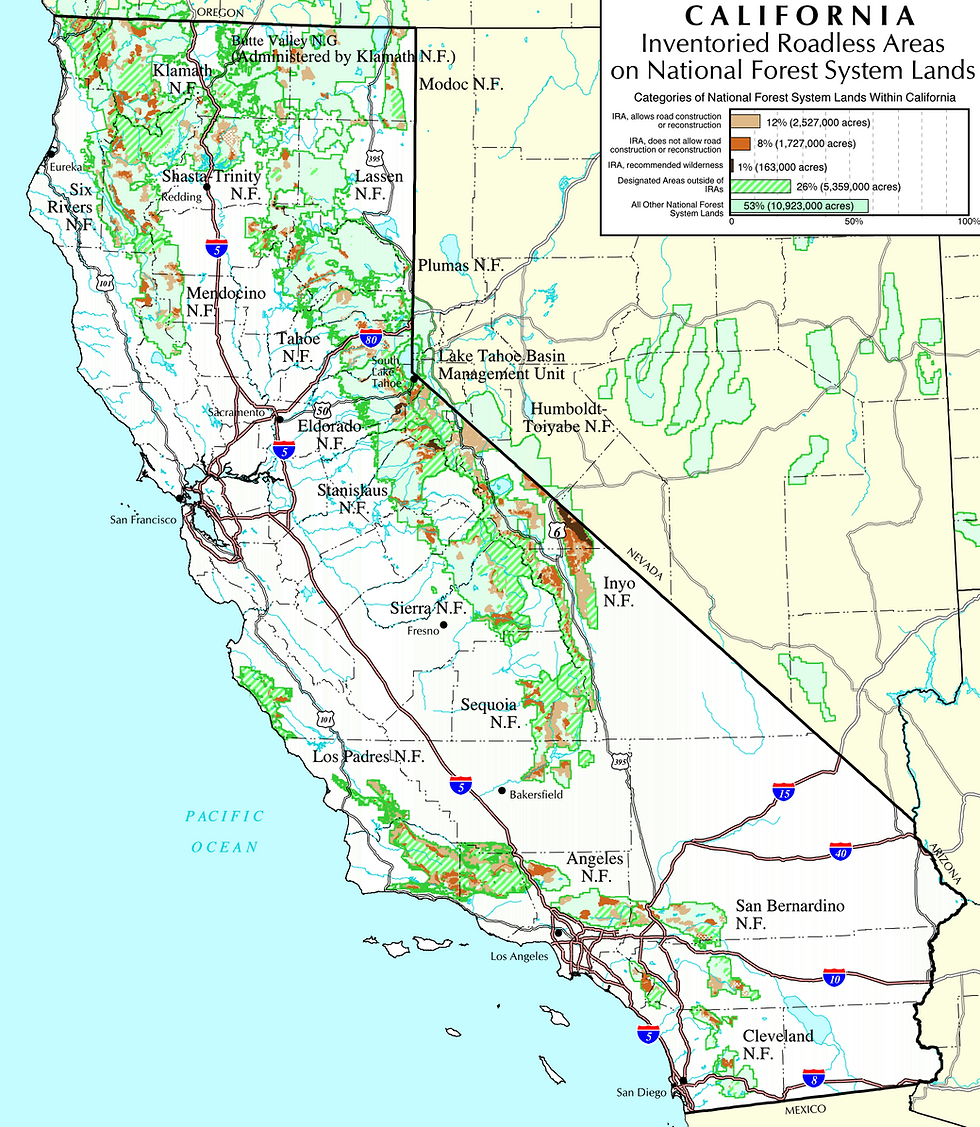Make Your Voice Heard in Redistricting!
- Tom Wheeler

- Jun 23, 2021
- 3 min read
Updated: Jul 23, 2021

While environmental and climate justice advocates have been building a policy agenda for years, we currently do not have the political power in California to act on these solutions at the rate and scale required. The 2021 redistricting process is a unique moment to make key structural change: not only for the next legislative session, but for this final decade leading to the 2030 climate deadline.
California’s Constitution requires that redistricting preserve “communities of interest”—those economic or cultural ties that bind communities together—to the maximum extent possible. Northwest California is one of those communities of interest. Our coastal-moderated ecosystems share the same ecological history, which in turn has shaped the culture and economy of the area. The threats facing Northwest California are also similar, whether from sea level rise, drought, or climate change. Our environment and economy are best served by keeping Northwest California together.

Participate in a Communities of Interest Public Hearing!
The Citizen Redistricting Commission is holding virtual meetings based on “zones.” Your address is in Zone A. The Citizen Redistricting Commission is hosting a special meeting for our zone on July 1 from 12-8pm, to solicit input. Go to https://www.wedrawthelinesca.org/meetings to see the meeting agenda and to register to speak! Each speaker will get up to 3 minutes.
Need talking points? Check out below for more information!
Draw Your Own Map!
Don’t want to sit through a public meeting? Can’t make July 1st? No problem! Submit your testimony online, by email or by mail.
The Citizen Redistricting Commission has set up a cool website where you can draw your community of interest. Go to DrawMyCACommunity.org and follow the helpful tutorials. (Having trouble? Email epic@wildcalifornia.org and we can help you through it!)
You can also provide input to the Commission by emailing: VotersFirstAct@crc.ca.gov (CC us at epic@wildcalifornia.org too!) or by snail mail: California Citizens Redistricting Commission, 721 Capitol Mall, Suite 260, Sacramento, CA 95814. You can even call in your comments to (916) 323-0323.
Need Help with What to Say?
At a loss over what to say? That’s understandable. We are here to help. The Commission needs to know four key things from you about your community. Here are some thoughts to help guide your testimony.
Where is your community located?
State where you are from and that you are speaking to preserve Northwest California’s community of interest.
What are the economic, social, and/or cultural interests that bind your community together?
There are many ties that link our communities together in Northwest California. Here are a few we at EPIC have thought of. Feel free to use any of these examples or add your own:
Our coastal-moderated forests, particularly the redwoods, form an ecological community that provide a shared economic history and a shared cultural history. Likewise, climate change presents unique challenges for this region (sea level rise, reduced summer fog and increasing temperatures). The importance of the redwoods to our cultural identity is mirrored in the names of our community institutions, Redwood Community Action Agency to the Redwood Rural Health Center to College of the Redwoods.
Our region shares similar land-based agricultural interests, from wineries stretching North from Sonoma through Humboldt, to cannabis. Climate change is going to affect agriculture in our region, from warmer temperatures to less precipitation. We are better able to mitigate and adapt together.
Our wild salmon fisheries found in the coastal streams and rivers of Northwest California, though a shadow of their former runs, are still vitaly important to our area and help to form a shared cultural interest. From tribal fishermen to recreational anglers, we share a love of our wild salmon and the region is invested in taking concrete steps to bring our salmon back. We are best able to advocate for salmon through preserving this community of interest.
Although Northwest California is often very rural, we are noticeably different from much of rural California. Environmental protection, love of public lands, and concern about climate change are values shared in Northwest California.
Why should your community should be kept together for fair and effective representation?

What nearby areas does your community want to or not want to be grouped with?
Northwest California share a common economy and culture; by contrast, we are less similarly aligned with our fellow residents to the East. These areas are more culturally conservative and their economies are still more tied to extractive economies, making them a poor “fit” with our area.





Comments